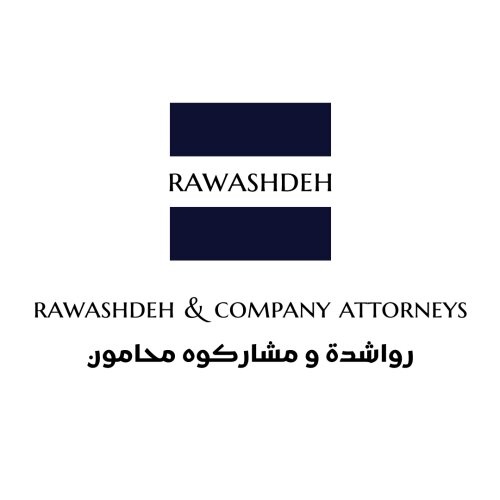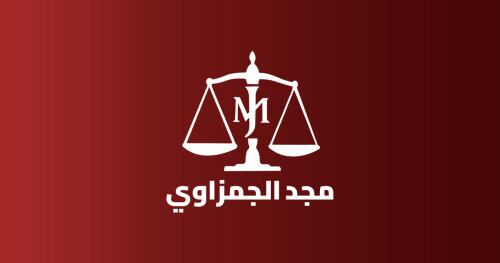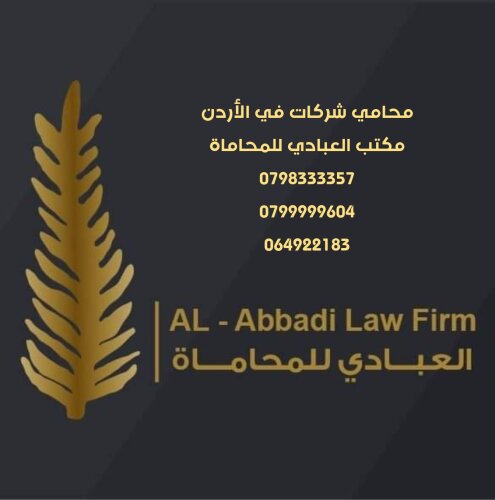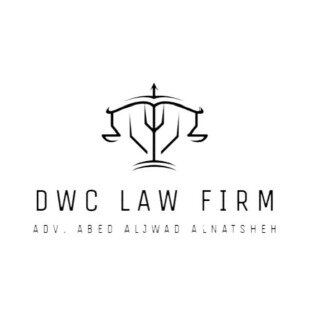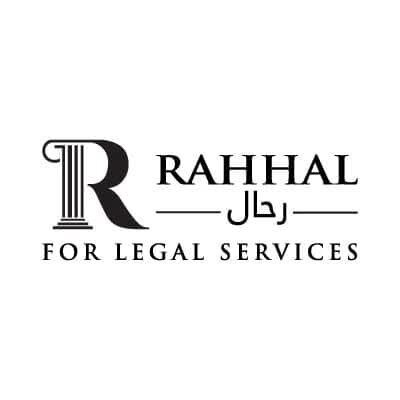Best Education Law Lawyers in Hashemite Kingdom of Jordan
Share your needs with us, get contacted by law firms.
Free. Takes 2 min.
Or refine your search by selecting a city:
List of the best lawyers in Hashemite Kingdom of Jordan

About Education Law in the Hashemite Kingdom of Jordan
Education Law in the Hashemite Kingdom of Jordan encompasses a range of regulations, policies, and statutes governing the education system. It sets out the rights and responsibilities of students, teachers, and educational institutions. The law ensures that the education system is accessible, equitable, and of high quality, aligning with national goals and international commitments. As the educational landscape evolves, legal frameworks continuously develop to address new challenges and opportunities in education.
Why You May Need a Lawyer
There are several scenarios wherein you might require legal assistance in the field of Education Law:
- You are experiencing discrimination in an educational setting based on gender, religion, or disability.
- You have disputes with educational institutions regarding admission, expulsions, or disciplinary measures.
- You need assistance in understanding and applying for educational rights for students with special needs.
- You are an educator facing contractual or employment difficulties.
- Your educational institution needs guidance on compliance with local education laws and policies.
Local Laws Overview
The legal framework governing education in the Hashemite Kingdom of Jordan primarily consists of the Education Act, associated bylaws, and ministerial regulations. Key aspects include:
- Compulsory Education: Education is compulsory for children from ages 6 to 16, with the government providing free schooling at this level.
- Equality in Education: Laws stipulate that all children, regardless of background, have the right to access quality education.
- Special Needs Education: Regulations are in place to ensure students with disabilities receive appropriate educational accommodations.
- Teacher Regulations: Policies govern the qualifications, duties, and rights of educators within the education system.
- Institutional Compliance: Educational institutions must adhere to various standards and are subject to regular inspections.
Frequently Asked Questions
What rights do students have under Jordanian Education Law?
Students have the right to free and compulsory education up to age 16, the right to non-discriminatory access to educational resources, and the right to a safe and supportive learning environment.
Are there laws protecting children with special needs in schools?
Yes, there are specific regulations ensuring that children with special needs receive inclusive education and proper accommodations within mainstream schools as far as possible.
What can parents do if they believe their child is being discriminated against at school?
Parents should first discuss the issue with school administrators. If not resolved, they may seek assistance from the Ministry of Education or legal counsel specializing in education law.
What legal steps can be taken if a student is unfairly expelled from school?
Families can appeal to the school's governing body or the Ministry of Education. Legal advice can be sought to explore further legal actions if necessary.
What are the obligations of private educational institutions under Jordanian law?
Private institutions must comply with national educational standards, include licensed educators, and provide quality educational services aligning with the Ministry of Education's guidelines.
What employment rights do teachers have in Jordan?
Teachers are entitled to fair hiring practices, clear contract terms, fair compensation, and due process in the case of disputes with their employer.
Are homeschooling and online schooling recognized under Jordanian law?
Traditional schooling is the recognized method under compulsory education laws, but there is growing dialogue around the regulation and acceptance of alternative forms of education.
What role does the Ministry of Education play in enforcing education law?
The Ministry of Education oversees school operations, enforces educational regulations, and ensures adherence to national educational policies.
Can foreign students access public education in Jordan?
Foreign students can attend public schools in Jordan, though there may be specific requirements or fees different from those of Jordanian students.
How can someone report a violation of education law?
Reports can be made to school authorities, directly to the Ministry of Education, or through legal counsel for more severe or unresolved issues.
Additional Resources
For more information and assistance regarding education law, consider contacting:
- The Ministry of Education: For policy details and regulations.
- Jordan Bar Association: For referrals to lawyers specializing in education law.
- Local NGOs focused on education and children's rights, such as the Jordan Education Initiative.
Next Steps
If you require legal assistance in the area of education law, consider these steps:
- Identify and document relevant details of your situation.
- Consult the Ministry of Education for initial guidance and understanding of related policies.
- Seek advice from a legal professional specializing in education law who can provide counsel and representation if needed.
- Engage with non-profit organizations that might offer support or resources for your case.
Navigating education law can be complex, but informed action and professional guidance can effectively address most legal challenges in this field.
Lawzana helps you find the best lawyers and law firms in Hashemite Kingdom of Jordan through a curated and pre-screened list of qualified legal professionals. Our platform offers rankings and detailed profiles of attorneys and law firms, allowing you to compare based on practice areas, including Education Law, experience, and client feedback.
Each profile includes a description of the firm's areas of practice, client reviews, team members and partners, year of establishment, spoken languages, office locations, contact information, social media presence, and any published articles or resources. Most firms on our platform speak English and are experienced in both local and international legal matters.
Get a quote from top-rated law firms in Hashemite Kingdom of Jordan — quickly, securely, and without unnecessary hassle.
Disclaimer:
The information provided on this page is for general informational purposes only and does not constitute legal advice. While we strive to ensure the accuracy and relevance of the content, legal information may change over time, and interpretations of the law can vary. You should always consult with a qualified legal professional for advice specific to your situation.
We disclaim all liability for actions taken or not taken based on the content of this page. If you believe any information is incorrect or outdated, please contact us, and we will review and update it where appropriate.
Browse education law law firms by city in Hashemite Kingdom of Jordan
Refine your search by selecting a city.




